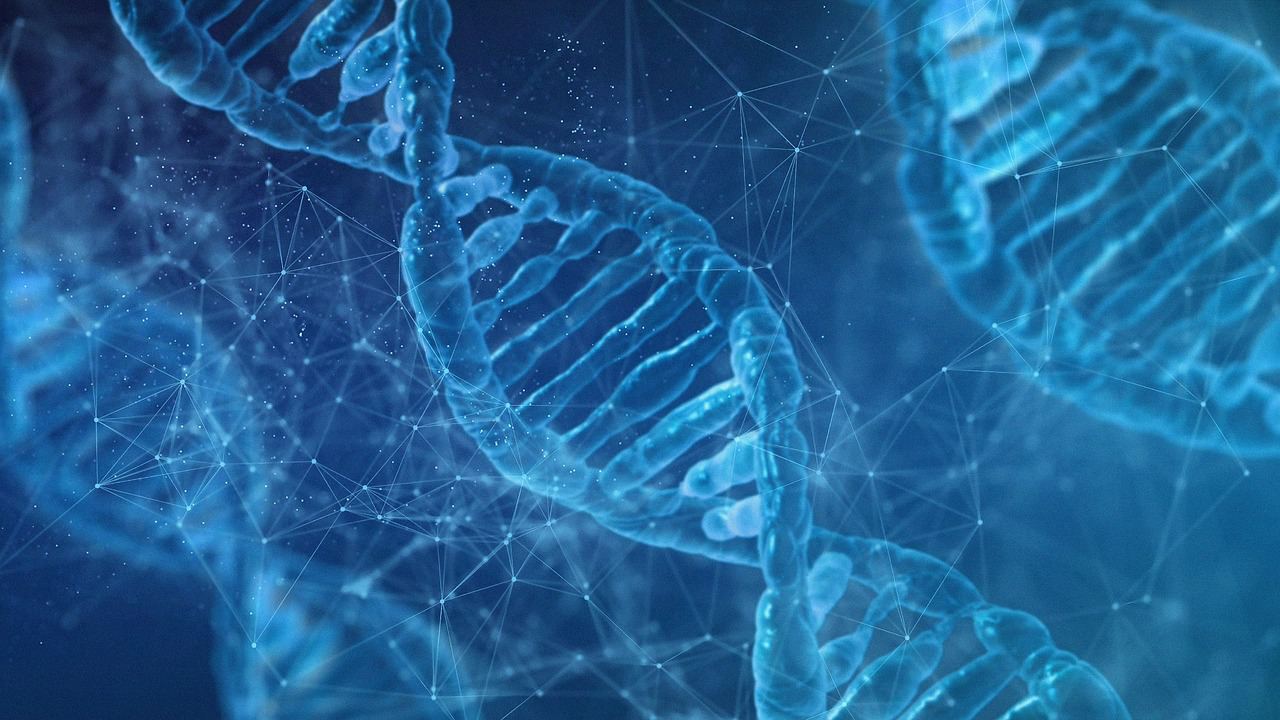6 Common Myths About Nutrigenetics and Personalized Nutrition Debunked
Nutrigenetics and personalized nutrition are growing fields that aim to provide individuals with tailored dietary advice based on their genetic makeup. However, there are many myths and misconceptions surrounding these topics that can lead to confusion and misinformation. In this article, we will debunk some common myths about nutrigenetics and personalized nutrition.
One of the most common myths about nutrigenetics is that DNA-based diets are the solution to weight loss and optimal health. While DNA testing can provide valuable information about an individual’s genetic predispositions to certain health conditions and nutrient requirements, it is important to note that genetics is only one piece of the puzzle. Other factors such as lifestyle, environment, and behavior also play a significant role in determining overall health and well-being.
Another common myth is that personalized nutrition is only for the wealthy or elite. While it is true that some personalized nutrition services can be expensive, there are many affordable options available, such as at-home DNA testing kits and online nutrition coaching programs. It is also important to note that personalized nutrition does not necessarily mean expensive supplements or exotic foods. Rather, it is about tailoring an individual’s diet to their unique needs and preferences, which can be achieved through simple dietary modifications and lifestyle changes.
What is Nutrigenetics?
Nutrigenetics is a field of study that examines how an individual’s genetic makeup affects their nutritional needs and how they respond to different diets. It is based on the idea that our genes influence how our bodies process and use nutrients, and that this genetic variation can have a significant impact on our health and well-being.
Myth 1: Nutrigenetics is Just Another Fad Diet
One common misconception about nutrigenetics is that it is just another fad diet, like the Atkins or South Beach diets. In reality, nutrigenetics is a scientific field that is backed by rigorous research and has the potential to revolutionize the way we approach nutrition and health. Nutrigenetics is the study of how your genes interact with your diet, and personalized nutrition is the practice of tailoring your diet and lifestyle to your unique genetic makeup. Both fields are based on years of scientific research and are backed by a growing body of evidence.
Myth 2: Nutrigenetics Can Predict Exactly What You Should Eat
Another myth about nutrigenetics is that it can predict exactly what an individual should eat based on their genetic makeup. While there is some truth to this idea, it is important to remember that nutrigenetics is still a relatively new field and there is much we do not yet understand about the complex interplay between genes, diet, and health.
Furthermore, there are many factors that can influence an individual’s nutritional needs and response to different diets, including their age, gender, activity level, and overall health status. Nutrigenetics is just one piece of the puzzle, and should be used in conjunction with other tools and strategies to optimize health and well-being.
Myth 3: Nutrigenetics is Only Relevant for Weight Loss
Finally, another common myth about nutrigenetics is that it is only relevant for weight loss. While it is true that nutrigenetics can be used to help individuals achieve and maintain a healthy weight, its applications go far beyond weight loss.
For example, nutrigenetics can be used to identify individuals who are at risk for certain nutrient deficiencies, and to develop personalized dietary strategies to address these deficiencies. It can also be used to identify individuals who are at risk for certain chronic diseases, such as heart disease or diabetes, and to develop targeted dietary interventions to reduce this risk.
Overall, nutrigenetics is a fascinating and rapidly evolving field that has the potential to transform the way we think about nutrition and health. While there are still many unanswered questions and unknowns, the research to date suggests that nutrigenetics has the potential to help us achieve optimal health and well-being by tailoring our diets to our unique genetic makeup.
Myth 4: Nutrigenetics and personalized nutrition are only relevant for athletes and bodybuilders.
Contrary to popular belief, nutrigenetics and personalized nutrition are relevant for everyone, not just athletes and bodybuilders. Your genes play a significant role in your overall health and wellbeing, and understanding how your genes interact with your diet can help you make more informed choices about what you eat and how you live your life. Whether you are looking to lose weight, improve your energy levels, or simply feel better, nutrigenetics and personalized nutrition can help.
Myth 5: Eating healthy on a budget is impossible.
It is a common misconception that eating healthy is too expensive and only for the wealthy. While it is true that some healthy foods can be pricey, it is possible to eat a nutritious diet on a budget. Some tips for eating healthy on a budget include planning meals and snacks around sales, buying in bulk, shopping seasonally, and purchasing frozen fruits and vegetables. With a little bit of planning and creativity, eating healthy can be affordable for everyone.
Myth 6: Nutrigenetics and personalized nutrition are only for people with serious health conditions.
While nutrigenetics and personalized nutrition can be helpful for people with serious health conditions, they are also relevant for people who simply want to improve their overall health and wellbeing. Understanding your genetic makeup can help you make more informed choices about your diet and lifestyle, which can have a positive impact on your long-term health. Whether you are looking to prevent chronic disease, manage your weight, or simply feel your best, nutrigenetics and personalized nutrition can be a valuable tool.
The Science Behind Nutrigenetics
What is Personalized Nutrition?
Personalized nutrition is a tailored approach to diet and nutrition based on a person’s genetic makeup, lifestyle, and personal preferences. It aims to optimize health and prevent disease by providing personalized recommendations for food and nutrient intake.
How Does Nutrigenetics Work?
Nutrigenetics is the study of how genetic variations affect an individual’s response to nutrients and dietary components. It involves analyzing a person’s DNA to identify genetic variations that may influence their nutrient metabolism, food preferences, and dietary needs. This information is then used to provide personalized dietary recommendations that take into account the individual’s unique genetic makeup.
The Role of Genetics in Nutrient Metabolism
Genetic variations can influence how the body metabolizes and utilizes nutrients, such as carbohydrates, fats, and proteins. For example, some people may have a genetic variation that affects their ability to metabolize lactose, the sugar found in milk. This can lead to lactose intolerance, where consuming dairy products can cause digestive discomfort.
Similarly, genetic variations can affect how the body responds to certain nutrients, such as vitamins and minerals. For example, some people may have a genetic variation that affects their ability to absorb and utilize vitamin D, which is essential for bone health. Understanding these genetic variations can help individuals make informed decisions about their diet and nutrient intake. For example, a person with a genetic variation that affects their ability to metabolize carbohydrates may benefit from a low-carbohydrate diet, while a person with a genetic variation that affects their vitamin D metabolism may need to supplement their diet with vitamin D.
In summary, nutrigenetics is a promising field that holds great potential for personalized nutrition. By understanding how genetic variations influence nutrient metabolism and dietary needs, individuals can make more informed decisions about their diet and optimize their health.
The Benefits of Nutrigenetics
Improved Nutrient Absorption
Nutrigenetics can help individuals understand how their bodies process different nutrients and which nutrients they may be deficient in. By analyzing an individual’s DNA, nutrigenetics can identify genetic variations that affect nutrient absorption and metabolism. This information can be used to develop personalized dietary plans that optimize nutrient absorption and reduce the risk of deficiencies.
Reduced Risk of Chronic Diseases
Personalized nutrition based on nutrigenetics can also help reduce the risk of chronic diseases. Research has shown that certain genetic variations can increase an individual’s susceptibility to certain diseases, such as heart disease, diabetes, and cancer. By identifying these genetic variations, nutrigenetics can help individuals make dietary and lifestyle changes that reduce their risk of developing these diseases.
Increased Energy and Vitality
Nutrigenetics can also help individuals increase their energy and vitality levels. By identifying genetic variations that affect energy metabolism, nutrigenetics can help individuals develop personalized dietary plans that optimize energy production. This can lead to increased energy levels, improved athletic performance, and better overall health. Overall, nutrigenetics has the potential to provide significant benefits to individuals looking to optimize their health through personalized nutrition. By analyzing an individual’s DNA, nutrigenetics can identify genetic variations that affect nutrient absorption, reduce the risk of chronic diseases, and increase energy and vitality levels.
The Limitations of Nutrigenetics
Nutrigenetics, the study of how genetic variation affects individual nutrient requirements, has been growing in popularity as a tool for personalized nutrition. However, it is important to understand the limitations of nutrigenetics and the need for professional guidance when interpreting genetic data for dietary recommendations.
The Complexity of Gene-Nutrient Interactions
One limitation of nutrigenetics is the complexity of gene-nutrient interactions. While there are some genes that have been identified as being associated with specific nutrient requirements or metabolism, the majority of genes involved in nutrient metabolism are not fully understood. Additionally, the interactions between genes and nutrients can be influenced by a variety of factors, such as age, sex, and lifestyle habits.
For example, a study published in PubMed found that while genetic variation can affect individual nutrient requirements, the impact of these variations is often small and can be influenced by environmental factors such as diet and lifestyle. Therefore, it is important to consider these factors in addition to genetic data when making personalized nutrition recommendations.
The Role of Environmental Factors
Another limitation of nutrigenetics is the role of environmental factors in nutrient metabolism. While genetic variations can impact nutrient requirements, environmental factors such as diet and lifestyle habits can also influence nutrient metabolism and requirements. For example, a study published in PubMed found that while nutrigenomics can provide insight into how nutrition influences gene expression, the impact of these interactions can be influenced by environmental factors such as diet and lifestyle habits.
Therefore, it is important to consider both genetic and environmental factors when making personalized nutrition recommendations. Professional guidance from a registered dietitian or other healthcare professional can help individuals navigate the complexity of gene-nutrient interactions and environmental factors.
The Need for Professional Guidance
Finally, it is important to understand the need for professional guidance when interpreting genetic data for dietary recommendations. While direct-to-consumer genetic testing kits may provide information on genetic variations related to nutrient metabolism, these tests do not provide a comprehensive picture of an individual’s nutrient requirements and metabolism. Additionally, the interpretation of genetic data for dietary recommendations requires specialized knowledge and training.
Therefore, it is important to seek guidance from a registered dietitian or other healthcare professional when considering personalized nutrition recommendations based on genetic data. These professionals can help individuals understand the limitations of nutrigenetics and the importance of considering both genetic and environmental factors in making personalized nutrition recommendations.
Conclusion
While nutrigenetics and personalized nutrition are rapidly growing fields, it is important to approach them with a critical eye and an understanding of the current limitations. Many common myths and misconceptions exist around these topics.
One common myth is that genetic testing can provide a complete picture of an individual’s nutritional needs. However, as discussed in Section 3, genetic testing can only provide information on a limited number of genetic variants and their associations with specific nutrients. It is important to remember that genetics is only one piece of the puzzle, and that other factors such as lifestyle, environment, and gut microbiome also play a role in determining an individual’s nutritional needs.
Another myth is that personalized nutrition is only accessible to the wealthy. While it is true that some personalized nutrition services can be expensive, there are many affordable options available, such as using free online tools to track nutrient intake or working with a registered dietitian to develop a personalized nutrition plan.
It is also important to note that while nutrigenetics and personalized nutrition have the potential to improve health outcomes, they are not a one-size-fits-all solution. As discussed in Section 4, there is currently limited evidence to support the use of genetic testing in guiding dietary recommendations, and more research is needed to fully understand the complex interactions between genetics and nutrition.







